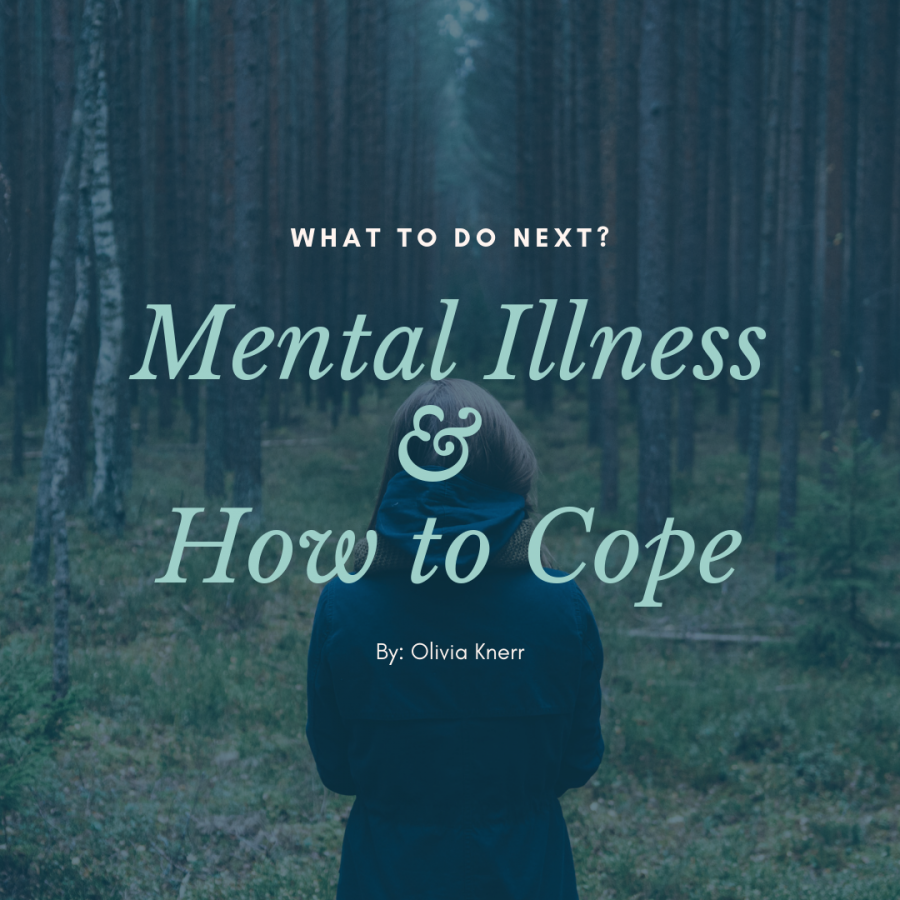Mental Illness & How to Cope
January 25, 2019
Mental illness is something many people struggle with on a daily basis. On average four hundred and fifty million people worldwide suffer from mental illnesses such as Bipolar disorder, clinical depression, anxiety disorder, anorexia, post-traumatic stress disorder, and plenty more. Some may not even know they have a mental illness. Finally being diagnosed lifted some relief off my shoulders because I finally knew why I shook when I was scared or for no reason at all, why I felt nauseous in class, and why I was so down when nothing happened. Going to therapy along with surfing the internet has allowed me to find some peace and ways to contain and calm my anxiety and depression. Allow me to share:
1. Therapy
Let’s start with the basics, if you believe you suffer and/or have been diagnosed with any mental illness, you should see a therapist. It’s perfectly healthy to talk to someone about your problems, don’t ever feel like it isn’t. Even those who are mentally healthy should talk to a therapist once in a while because it can help with a lot more than just depression, anxiety, etc. If you cannot afford a therapist, try a community mental health clinic or a training clinic within a college of some sort. Allowing yourself to be open with people you trust is truly the first step into healing and containing your mental illness(es).
2. Isolation
When I say isolation, I don’t mean lock yourself in your room and be robbed of social interaction. By isolation, I mean instead of saying ‘my’ depression or ‘my’ anxiety start replacing the word ‘my’ with ‘the’. My therapist had told me that isolation and basically disowning the depression and anxiety can lift some of that weight off your shoulders. Don’t claim it as yours, but that doesn’t mean don’t claim responsibility for your actions.
3. Art
Drawing, painting, coloring, and writing are among some of the crafts that have proven to help you handle some of the feelings you carry as an everyday struggle. Drawing and painting can allow your body to pick, choose, and vocalize your thoughts and emotions without actually speaking. Sometimes when you’re going through things it can be hard to put your feelings into words because you have a million thoughts going through your head and none of them make any grammatical sense, not to others anyway. Grab a piece of paper, some pencils, your wild thoughts, and start drawing. Who’s stopping you?
4. Self-care
Limiting caffeine, alcohol, and junk foods (as bad as it may sound) can improve and help calm both anxiety and depression. Eating healthy such as including more fruits and veggies in your diet can make your brain and body feel much better. Now, I’m not saying this is the ultimate cure for depression, just that it’ll lessen it. Exercising (and sweating) daily for a minimum of twenty minutes can help your body feel light as well, however, don’t forget to get a good night’s sleep.
5. Music
This one sounds like a no brainer but putting a playlist of your favorite music on and blasting it while you dance in the kitchen never fails to boost my mood. That cheesy saying “Dance like no one’s watching” is helpful and accurate.
6. Walking
Fresh air does wondrous things for the brain. Taking a 10-15 walk outside can allow you to calm down when you feel like you’re going to have a breakdown or if, in general, you are feeling overwhelmed.
7. Breathing Exercises & Meditation
Breathe in, breathe out. Deep breathe in, deep breathe out. This is 2019, the internet is full of resourceful things, such as videos to guide breathing in times of a panic attack or an episode. I find meditation works when my anxiety is high while I try to sleep or work. Here is a playlist on youtube for anxiety hypnosis, let’s not forget the playlist for depression hypnosis and anything else you’d need to meditate for. My old MFLC (Military & Family Life Counselor) guided me through deep breathing and meditation when I was anxious, it was very helpful and I won’t ever forget how much she helped me.
In the end, we’re all humans, we all have differences, we all suffer in different ways. However, if things ever get too much and you need assistance and guidance through those dark times where it feels nothing is going to change, feel free to call the National Suicide Hotline at 1-800-273-8255 or open up an online chat with them if you have social/phone anxiety. Please seek help, hurting yourself or others is never the answer to anything.
Please remember you are loved, you are not your mental illness, you are wanted here.




























